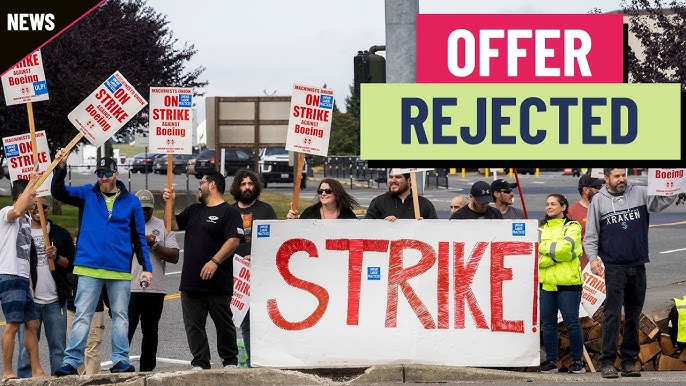Boeing’s operations face increased challenges as a workers’ strike continues to disrupt production and strain its supply chain. The recent rejection of Boeing’s contract offer by 64% of its West Coast factory workers has forced suppliers, like Independent Forge in California, to consider further cost-saving measures. With over 33,000 Boeing employees on strike since September, Independent Forge president Andrew Flores mentioned that his company may reduce operations to three days a week if the strike continues into November. Such reductions are necessary to manage costs and retain a critical workforce, especially since demand for aerospace components is expected to rebound when production resumes.
The strike impacts Boeing’s broader network of suppliers, many of whom are still recovering from the company’s earlier quality and safety setbacks. In recent discussions, suppliers expressed concerns over the prolonged effects of the strike, which could force small suppliers to lay off more workers. This risks creating a domino effect that could delay Boeing’s ability to restore production, particularly of the 737 MAX, which has regulatory production caps due to recent safety scrutiny.
Major Boeing suppliers, including Spirit AeroSystems, have already initiated temporary layoffs and warned of additional cuts if the strike persists beyond November. Spirit Aero, responsible for key 767 and 777 widebody parts, may take up to a year to reach full production speed after the strike, further complicating Boeing’s recovery efforts. Additionally, suppliers such as Howmet, Honeywell, and Spirit Aero saw stock declines amid strike-related concerns.




